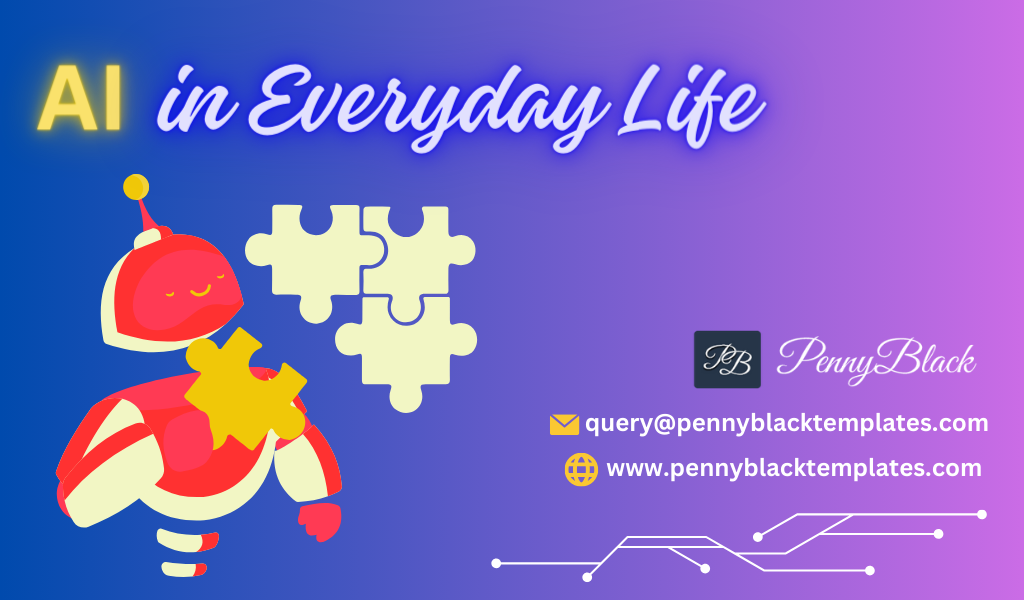SOCIAL MEDIA MARKETING
“AI in Everyday Life: How It Makes Our Lives Better”
Introduction
Artificial Intelligence (AI) has increasingly become an integral part of everyday life, offering many benefits that enhance efficiency, convenience, and overall well-being. Here are some ways in which AI makes our lives better
Automation and Efficiency:
AI automates repetitive and time-consuming tasks, allowing individuals to focus on more meaningful and creative activities. This increases productivity and efficiency in various aspects of life, including work, household chores, and personal tasks.
Personalized Experiences:
AI systems analyze vast amounts of data to understand individual preferences and behaviors. This enables the delivery of personalized experiences in areas such as entertainment, shopping, and content consumption, making products and services more relevant to each user.
Healthcare Advancements:
AI contributes to significant advancements in healthcare, from diagnostics to personalized treatment plans. Machine learning algorithms can analyze medical data, assist in early disease detection, and even predict patient outcomes, leading to improved healthcare outcomes.
Smart Assistants and Virtual Agents:
Smart assistants powered by AI, such as Siri, Google Assistant, and Alexa, provide virtual support in managing daily tasks, answering queries, and controlling smart devices. These assistants enhance convenience and accessibility, making technology more user-friendly.
Enhanced Education:
AI applications in education include personalized learning platforms, intelligent tutoring systems, and automated grading. These technologies adapt to individual learning styles, providing a tailored educational experience and improving overall learning outcomes.
Predictive Analytics:
AI-driven predictive analytics help in forecasting trends, whether in business, finance, or weather. This capability assists in making informed decisions by analyzing historical data and identifying patterns that may not be immediately apparent to humans.
Improved Customer Service:
AI-powered chatbots and virtual agents enhance customer service by providing instant responses to inquiries, resolving issues, and offering personalized assistance. This leads to better customer satisfaction and efficiency in service delivery.
Efficient Transportation and Logistics:
AI plays a crucial role in optimizing transportation and logistics operations. It helps manage traffic flow, predicts maintenance needs for vehicles, and enables efficient route planning, leading to reduced congestion and improved overall transportation systems.
Language Translation:
AI-powered language translation tools have made communication across languages more accessible. Real-time translation services facilitate global collaboration, travel, and cultural exchange, breaking down language barriers.
Innovations in Entertainment:
AI contributes to the entertainment industry through content recommendation algorithms, virtual reality experiences, and even the creation of AI-generated music and art. These innovations enhance the overall entertainment experience for consumers.
Cyber security:
AI enhances cybersecurity by detecting and responding to security threats in real-time. Machine learning algorithms can identify unusual patterns and behaviors, helping protect individuals and organizations from cyberattacks.
Conclusion:
While AI brings numerous benefits, it’s important to consider ethical implications, privacy concerns, and the need for responsible AI development to ensure that these technologies are used for the greater good. As AI continues to evolve, its positive impact on everyday life is likely to grow, offering new and innovative solutions to various challenges.








